#Tips for writing
Explore tagged Tumblr posts
Text
Tips On How to Write Characters with Wings (For both fanfic writers and original content writers)

So I’ve been reading a lot of fics lately where people are either
A) Putting wings onto canon characters
B) Making OCs with wings
So I decided that, with the influx of people who are writing winged characters (and therefore the influx of errors that come with writing winged characters), I’d make a little thing to help you slap a pair of wings onto anyone!
This is also a bit personal, too, because the MC in my upcoming novel has wings!
1. Know that there are a lot of types of wings to choose from
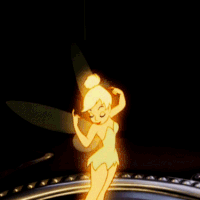
Part of being a writer is the desire to take something (whether it be a pre-existing work or an idea in your head) and make it into your own. So, instead of just going with the classic bird wings, why not spice it up a bit? If your character is an angel, you certainly don’t have to stick to the classic depictions of angel wings. Why not give them butterfly wings or dragonfly wings?
Here’s a small list of different types of wings to choose from:
Bat wings
Beetle wings
Bird wings
Butterfly/Moth wings
Dragonfly wings
Note that these wings are for animals who can fly. There are also animals who can “fly” that actually glide, such as sugar gliders and flying squirrels.
Yeah, so the options are pretty limited, but feel free to make up your own kinds of wings that aren’t necessarily based on a pre-existing creature’s wings!
2. Be familiar with the anatomy of your character’s wings and their limits
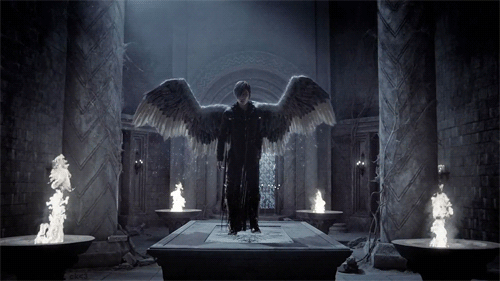
If your wings are completely unique, draw them out. A diagram or picture is key when it comes to things like description. I’m not gonna tell you what everything does and give you Animal Wing Anatomy 101, that’s for you to research. Know that there are different types of wings and that they have different uses, strengths, and weaknesses.
3. Never use the full extent of your research!

Surprise, surprise!
“But wait, Maddy!” you cry, writing utensil in hand and poised to stab me. “I thought we were supposed to were supposed to show our research!”
Well, you are. Technically that’s not wrong. But, readers don’t want to know ALL of it. Over-described wings are sometimes worse than under-described wings; what sucks more than not knowing what a character’s wings look like is having to look up wing anatomy in the middle of the chapter!
Only use the most basic of vocabulary when it comes to describing the parts of the wing. Most of the time, you just have to say “bat wing” or “feathery wing” and the readers get the basic idea. (Like seriously, do you think the readers know what a dactylopatagium brevis is????? It’s a part of skin on a bat’s wing btw)
4. Don’t bring your character’s wings up only when they’re needed!!!!
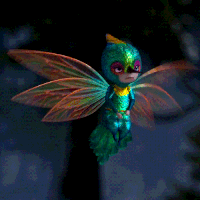
Unless your character’s wings can fade away when they’re not needed, wings are a 100% real, 24/7 thing! It’s bothersome when writers mention the wings in one chapter and then only bring them up when there’s a daring escape that needs to be performed! Most of the time, I forget that the characters even have wings at all!
There is also the fact that wings aren’t all pros and no cons. If they’re functional, they’re probably big, and if they’re muscular, they’re probably bulky. If your character is clumsy, they’ll probably knock things over constantly, and if they’re not clumsy, they’ll still knock things over constantly.
Your wings are two (or four, or five, or six quintillion) extra appendages; they’re a part of your character! You don’t have to spend every second reminding the readers that they’re there, but don't go long stretches of time without even mentioning them.
5. Your character’s wings can be a good way to indicate their mood or to provide for that little bit of description that you think you make be lacking
Why wouldn’t you want to describe the wings? I mean, you don’t want to describe every minute detail over and over again, but it’ll boost your word count a lot more than you think. They can also be used to convey your character’s feelings without explicitly telling the reader! It��s like a new set of facial expressions!
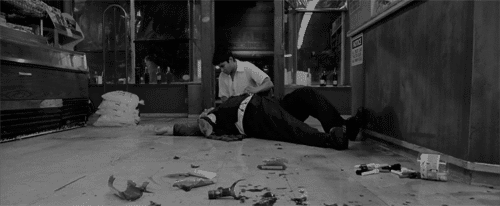
See? You can tell he’s wary and ready to fight from the movement of his wings! Also he’s crouching next to a dead body but that’s not relevant right now
Here’s a list of wing language (?) that you can incorporate into your story that will not only increase your word count, but will also add to the sustenance of your story!
Nervous
Twitch
Flutter
Ripple
Fold tightly
Fidget
Flap
Angry
Flare
Bristle
Fluff up
Ripple
Beat
Raise up
Snap open
Happy
Flutter
Curl up
Ripple
Wave
Flap
During Battle
Bludgeon
Smack
Bat
Clout
Whack
Kick someone’s legs out from under them
Snap someones neck (only for muscular wings like bat and bird wings)
Problems that may come with having wings
Poke out from under blankets and let all of the cold air in
Stepped on
Get pins and needles from being folded for too long
Squashed on chairs/ in beds/ in crowded hallways
Vulnerable in battle
Molting (for bird wings)
Hope this helped!!!
#writing help#writing tips#tips for writers#tips for writing#tips for beginners#tips for beginner writers#tips for fanfic writers#help for writers#writing#creative writing#writing fanfic#helpful#writing inspiration#creative writing help#fanfic writing help#fanfic#fanfiction#writing fanfiction#fanfic writers#writers#creative writers#writing a book#writing a novel#writing advice#creative writing advice#fanfic writing advice#tips on how to write characters with wings#tips on how to write#advice on how to write#help with writing
44K notes
·
View notes
Text
Character Development: Speech
Finding your character’s voice is one of the most important things you can do to make your character more fully developed. It can often be the thing that sets your character apart and makes the reader easily able to identify them. Creating your character’s voice breathes life into them.
What to think about:
Formal or informal
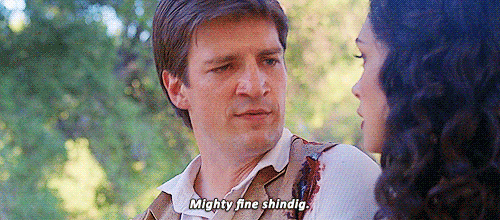
Can be shown with:
sentence structure/complexity (shorter vs. longer sentences, number of clauses, etc.)
contractions (e.g. y’all versus you guys, I am vs. I’m)
word choice (simple or advanced; more poetic vs. more practical, blunt vs. subtle)
word order/syntax (can indicate dialect and/or formality)
Things to ask yourself:
- If my character speaks formally/informally, is there a reason?
- Does it indicate their status?
- Or is it a rejection of their status? (e.g. does your highborn character prefer to speak informally because they hate their position in life, or does your lower class character speak more formally to make themselves appear higher class?)
- Is the way they speak normal for their society? In other words, if your character is, say, an alien from a highly formal culture, they won’t think of themselves as speaking abnormally. But if they visit another, less cultured planet, they’ll stick out like a sore thumb.
Catchphrases
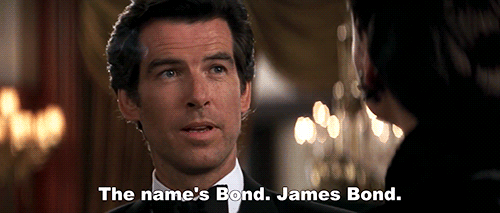
When done well, this can be amazing. When done awfully, it makes the reader sigh and roll their eyes in exasperation. So, be careful not to overdo it!
Catchphrases can include:
slang (e.g. wicked, if your character is from Boston, like Faith Lehane from Buffy: the Vampire Slayer)
exclamations/swears (”Hell’s bells!” - Harry Dresden, “Zoinks!” - Shaggy, “Holy ___, Batman!” - Robin at various times)
automatic responses (such as in response to how they are, e.g. “Five by five.” - Faith Lehane, or in response to a question they don’t want to answer, e.g. “Spoilers!” - River Song)
greetings/goodbyes (”Hello, sweetie.” - River Song, “What’s up, Doc?” - Bugs Bunny)
introducing themselves ( “The name’s Bond. James Bond.” - James Bond, “Trust me. I’m the Doctor.” - the Doctor, “Denny Crane,” said repeatedly by Denny Crane)
an explanation/repeat phrase of some other classification (”Dammit, Jim, I’m a doctor, not a ________.” - Bones, “Your mission, should you choose to accept it...” - Mission Impossible, “Live long and prosper.” - Spock, “Same thing we do every night, Pinky! Try to take over the world!” - the Brain)
A lot of times, these catchphrases can become inside jokes, and merely referencing them is enough (think: “It’s a bird! It’s a plane! It’s Superman!” or “Holy _______, Batman!”).
But sometimes, it can feel a little forced (like Miss Martian’s constant use of “Hello, Megan!” all the time in Young Justice). You want to use these catchphrases sparingly, and when they make sense. While you and I might say “fudge” or another such exclamation any time we trip, the reader does not want to read that twenty times in the same chapter because your character is a klutz. This is the art of writing, not the hyperrealism of writing. You want it to mean something, so use it only when needed.
Things to ask yourself:
- Does this character really need a catchphrase? How will this help establish character?
- Does the catchphrase come from the type of place they live or things they do? For instance, Harry Dresden is a wizard, so when he swears he says, “Hell’s bells,” which reminds us of his job and difference from those around him. This wouldn’t be the same if he simply said, “Dang it,” any time he swore.
- Is there a reason they have a catchphrase? Is it deliberate or unconscious on their part?
- Is there a way you can flip the catchphrase and use it to signal a shift in the story or an unexpected twist (e.g. signifying that somehow your character as switched bodies with another person, like Faith from Buffy: the Vampire Slayer; alternatively, that something isn’t right with the character, because of certain events, and they’re not saying their usual catchphrase)?
Verbal Tics*
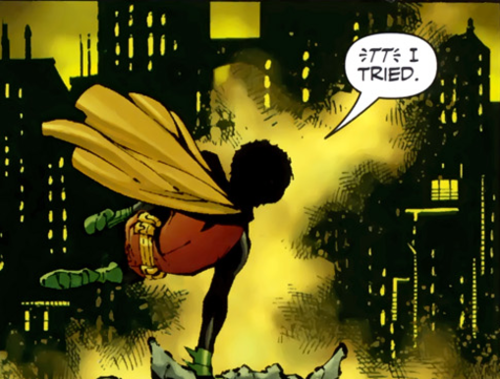
Verbal tics are sounds that are not really words, more like filler, that get used almost unconsciously in everyday speech. Words like “ehm,” “uh,” and so on are all verbal tics. (Various internet sites assure me that throat clearing and sniffing can also be included here, but I leave that up to you.) For this section, however, I am also including words, but only those words that are filler. I am also including alterations to the text that represent how someone is speaking.
Now, I know that in any writing guide you read, they want you to NOT, NOT, NOT use regular tics like these in dialogue. It’s annoying, repetitive, annoying, serves no purpose, annoying, and so on. In a sense, they are very much right. Don’t use verbal tics for every character! But using them to distinguish one character (or a couple, in different ways) can work very well if done right.
Verbal tics can be:
words (examples: “You don’t wanna mess with us, see, ‘cause we’re dangerous, see,” or “So, I went to the mall yesterday, and there was this dress, so I bought it, so...” or even “Like, I’m not even sure what Vanessa was, like, wearing at that party last night?”)
filler sounds (e.g. “eh,” “um,” “uh,” “er,” “hrrgh,” “urk,” and so on)
messing with the letters and format of the sentence (e.g. dragging out the letter, making every word separated for a slow speaker, running words together to indicate speed, etc.)
Examples of verbal tics (this is a section in which examples are very helpful, so here you go):
Damian Wayne, the current Robin at DC Comics: uses the distinctive sound “tt” in his appearances to express his emotions, even - tt - other comic series that he guest-stars in
Asmodeus from the Redwall series: drawsss out the letter ssss becaussse he isss a ssssnake
The Flash, at various points in DC Comics: speakswithallthewordstogetherbecausehe’stalkingsofast!!!
Canada, from the Hetalia anime: ending every sentence like a true Canadian, eh?
Things to ask yourself:
- What purpose would a verbal tic have for my character? Do they really need one?
- Is the verbal tic connected to an emotion, or is it involuntary? (Generally, in real life, it is involuntary, but once again, this is art, and so it can have meaning, if you so choose!) What emotion might it be connected to?
- Are they aware of it? Are they embarrassed by it? Do people make fun of them for it?
- Is it part of their dialect/culture?
- Is it a recent thing or have they always done it?
- Where is the balance between making it seem like a realistic tic and annoying my reader with the repetitiveness?
*I am not referring to any medical diagnoses here, although if you want to go right ahead and use medically diagnosed tics for a character, please feel free to! However, this section does not deal with those, as I am not an expert, although I understand there might be some confusion due to the terminology I have used. Please let me know if there is a different term I should be using instead, as I couldn’t find one anywhere. Thanks!
Ways of addressing others

The way that your character addresses other characters says a lot about how they view and respect those around them, in addition to their personality. In addition, if you establish a character addresses others in a certain way (say, by last name only), then when they break this pattern, the reader knows it is important.
Different ways of addressing others:
nicknames (either a shortening of someone’s name, even if it’s not usually shortened, or a name reflecting some characteristic of theirs - e.g. “Jane” to “Janie,” or “Shorty,” or Tony Stark’s brand of nicknames, like “Capsicle” or “Rock of Ages”)
titles (similar to nicknames, but more formal - e.g. a character referring to people by their rank, job, familial relations, etc.)
last name only
full name only (never shortened, includes first, last, and middle names)
no nicknames (never refers to a character by anything other than what’s printed on their birth certificate, can be combined with others on these lists, especially the previous two)
familial referencing (e.g. Aragorn, son of Arathorn)
insults (ranging from harmless to aggressive, can be combined with the first one on this list, not always swears)
by physical/personal characteristics [epithets]** (e.g. by gender, hair color, eye color, traits - for instance, “boy,” “you, redhead!” or “the only one of you with any spine”)
** This one tends to work best in stories set in older times or in sci-fi/fantasy. Epithets can be insults, but the epithets I am thinking of are more Homeric in nature.
Things to ask yourself:
- Is there a reason behind my character’s decision to address people in this way? Does it indicate a lack of trust? A need to crack jokes?
- What does this say about my character’s background? Is this the normal way to address people where they come from? Is it abnormal to do so in the place they are now?
- Does my character evolve from speaking this way? Do they start speaking in a different way, either deliberately or unconsciously? Why?
Accents

Accents are tricky. There are several different ways to write accents (I’m currently working on a post that explains them further), but basically no matter how you write an accent, there are a few things you can do to portray the accent.
slang (e.g. barbie = barbecue in Australian slang)
word order/syntax (e.g. “I’m after going to Mary’s” = “I just went down to Mary’s” in Hiberno-English)
contractions (I’ve versus I have, or y’all versus ye vs youse vs you and so on)
idioms (words or phrases that do not have equivalents in other dialects/languages/places)
diction (words meaning different things, like “chips” in American English and in British English)
verbs (e.g. “ain’t,” “be,” “runnin,” or mixing up tenses)
Keep in mind:
- be RESPECTFUL of whatever accent you’re trying to portray, especially if it’s not your accent
- don’t overdo the accent because it might end up sounding stereotypical (and that is not respectful - see above)
- you should get a feel for the accent you’re trying to write. Listen to the music, read something in that accent, watch/listen people talk in the accent until you hear the rhythm and way people with that accent talk.
Things to ask yourself:
- Is the way I am portraying this accent as accurate as it is within my power to make it? (In other words, have I done my research?)
- How does my character feel about their accent? Are they in a place where their accent is normal? Are they in a place where they stand out because of their accent?
- Continuing on that thought, how noticeable is their accent? Is it the equivalent of someone from, say, Boston going somewhere else in Massachusetts, or the equivalent of that person from Boston going to California, or the equivalent of that same person going to London? Each one becomes more and more noticeable the farther the person goes from their home.
- Has my character made an attempt to hide their accent? Deliberately intensify it? Or do they just not care?
- Does it get stronger or weaker based on their emotional state?
Emotion
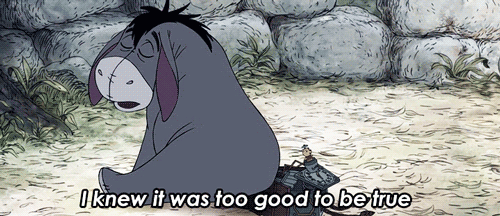
The emotions your character normally expresses when they’re speaking say a lot about their general emotional state. In addition, if there is a change in their emotional state, readers will be able to know that just from the way they talk (though context and body language are always useful!)
You can show emotion in speech through:
speed (if they’re easily excited, they might talk fast! and with a lot of exclamation points! But if they’re sad a lot...well, they might talk a bit more slowly and take their time...kind of like Eeyore.)
word choice (is it generally positive? negative? Or somewhere in between?)
reactions to other characters’ dialogue (are they generally patient and wait for the other person to finish? Or do they jump in because they’re so excited about something the other person has said?)
volume (are they loud? Quiet? Are they normally quiet but get loud when they’re angry? Or vice versa?)
understandability (not necessarily stuttering or stumbling over words, but can be; are their procession of thoughts/logic easy to understand? Is their conclusion sensible? Are they understanding others easily or do they need clarification? For instance, if your character is easily excited, maybe their dialogue comes in a jumble of words that is hard to understand. Maybe they’re so angry they’re not listening to anything the other person is saying, and their dialogue reflects that.)
punctuation/capitalization (are they unsure of themselves and what they’re saying a lot, so they use a lot of question marks like this? Are they aggressive in their emotions and so THEY SHOUT LIKE THIS!!! Are they...kind of thoughtful and take the time to...express themselves correctly...or are they - well - I mean are they - like - the kind of people who - you know, backtrack and correct themselves a lot?)***
***Again, you want to be careful not to overdo this, as it can get annoying AND lose the effect it has on the reader. If one of your characters SHOUTS. EVERYTHING. THEY. SAY. THEN WHEN SOMETHING REALLY IMPORTANT HAPPENS TO THE CHARACTER AND THEY GET VERY EMOTIONAL AND SHOUT, IT’S LOST A TON OF EMOTIONAL IMPACT ON THE READER. Like the end of that sentence. Did it make a big impact on you? It should - it was the entire point of the sentence. But it was lost amidst all of the other capitalized words. The same thing goes for any type of repeated punctuation/capitalization for a character - you want to make sure it counts.
Things to ask yourself:
- Why does my character express this emotion generally?
- What does it say about their outlook on life?
- What does that say about how they view other people?
- Does their dialogue rely on these techniques too much when trying to show their emotions? How can I combine these with their body language?
Focus/Fixations

This is a pretty simple one. Focus can be organization of thoughts - basically, what idea(s) can they or want to focus on. A character that is very focused might be a practical person who is focused on the here and now, and their plans for whatever situation they’re in. A character that is less focused might be someone who thinks of several things at once, which reflects in their dialogue.
Fixations are the things that their minds keep coming back to. So for example, if a character is worried about how they did on a test, throughout the story their dialogue might keep returning to that subject or referencing it. For instance: “Hey, when do you think we’re getting that test back?” or “Wow, this is pretty hard. Almost as hard as that test we took.” You want to make it less obvious than this, of course! (A good example is Anya from Buffy: the Vampire Slayer and her obsession with making money.)
Ways to show focus/fixation:
number of ideas/topics in their dialogue at a time
relevance of topics to the present
relevance of topics to the past/future
how they react to people who do not share their focus/fixation (e.g. a focused person finds it annoying when a person who is not focused keeps interrupting them, or a person who is less focused finds it annoying that a person who is focused is paying too much attention to one thing)
Things to ask yourself:
- How focused are they when talking?
- Do they think of a million things at once, or just one at a time?
- What are some short-term fixations they might have? Some long-term?
- Why might they be focused/not focused? Why might they have these fixations? What do these fixations say about their character?
- Do the focus/fixations change over time? How? Why? Does it reflect a change in their character?
- Am I making my character too focused/fixated on something? Is it detracting from or adding to the story or the character arc?
How others see them vs. how they see themselves
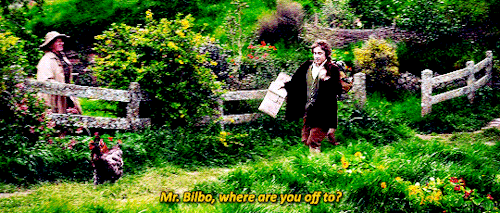
This one is probably the broadest one on the list. There aren’t specific things you can do to get this across (it’s more of a general thing), but it’s a cycle that you should keep in mind.
Your character sees themselves in a certain way. For instance, they might think of themselves as helpful, or kind.
The way that they see themselves can influence why they do things (e.g. if they see themselves as a person who doesn’t go on adventures, like Bilbo Baggins, they will refuse to go on an adventure.)
The actions that they take influences how other characters see them, but the other characters do not necessarily see your character’s perception of themselves (e.g. in the Hobbit, Bilbo sees himself as helpful and averting war by giving the Arkenstone to the Elves. He thinks he is being a good friend. However, Thorin sees it as a betrayal and thinks Bilbo is disloyal and not a good friend. Both of them at the time of their actions think they are right.)
How other characters see your character influences how they treat your character (e.g. Because Thorin thinks Bilbo has betrayed him, he threatens Bilbo and rejects him as a friend. Bilbo escapes with his life, but only through the help of the other dwarves. Again, to each character, their own actions are justified and so their dialogue reflects their belief that they are right. So, when they talk to each other, both of them think that they are right and the other is wrong, and you can see this in their dialogue.)
How they treat your character influences how your character sees and reacts to these people, and can influence your character’s perception of themselves (e.g. Because Thorin rejected Bilbo and called him a traitor, Bilbo is bewildered and believes for a time that Thorin cannot be saved, and he feels like he failed).
The cycle continues.
All of this is reflected in their dialogue to each other.
Knowing how each of your characters see each other and themselves will influence their dialogue and reactions to each other. Characters can misunderstand each other, underestimate someone, or help someone feel better about themselves, just to name a few things.
Things to ask yourself:
- How does my character see themselves? Why? Are they one hundred percent correct?
- How do other characters see my character? Why? Are they one hundred percent correct?
- Does my character have any idea of other people’s perceptions of them? If so, do they care? Is my character correct about what they think other people think about them?
- Will my character’s perspective of themselves/other people change? Why and how? Will other characters’ perspectives of my characters change? Why and how?
- How do all these reactions to each other influence the story?
Hope this helped! Let me know if there are any questions.
- Riona
#writing#writing help#character development#writing advice#tips for writing#character development series#speech
15K notes
·
View notes
Text
Writing isn’t JUST About the Words – Improve Your Storytelling

Most people looking to improve their writing usually look to the prose. Here’s why that’s not the only thing you need to work on.
Don’t get me wrong, I’m a huge fan of pretty words. I love when an author can string something together that just makes me take a step back and be like, “Woah. That was gorgeous. Wordgasm right here. Wow.”
But truth be told, simply smashing a bunch of pretty sentences together isn’t all it takes. There are so many writers out there who are more simplistic in their writing style but they’re super successful because they can tell a great fucking story.
And that’s why I read in the first place. For the story.
There’s a shit ton of advice out there about how to be a better writer and most of it involves things like refining your prose and cutting filter words and the different sentence structures and how to craft a paragraph that reads simply and cohesively.
Yeah, those things are important. However, if you’re a pro at prose but you can’t tell a story worth shit, your book is going to suck some major ass. And I like to avoid ass-sucking books.
I don’t care about a paragraph of pretty words if those words don’t take me anywhere.
That being said, how does one learn how to tell a better story? Storytelling is definitely a talent that’s usually natural. However, if you want to improve the way you tell stories, try some of these things.
1. READ SOME GOOD STORIES
If you’re a writer looking to improve your storytelling, you need to read more. More specifically, you need to read some good books. But in general, you just need to read. Make reading high on your priority list if you’re a writer.
Seeing how other authors managed to tell a story and tell it well will help you learn how it works and how to write something good. Figure out what they did from chapter to chapter that really hooked you.
Pay attention to how they ended it and what specifically they focused on in the climax. Take note of the foreshadowing of events and how they managed to slip stuff in without you noticing. Dissect the book, basically. But only if it was a good one and left you in awe. You’ll be able to tell if a book was bad and that’ll also help you see what not to do. Just don’t go reading shitty books on purpose.
2. Listen to some free advice from successful authors
It boggles my mind when writers aren’t actively working to learn more about writing and storytelling. Honestly, there are so many free or very cheap ways to learn. You don’t have to spend thousands of dollars and go to college to become an author. That’s not necessary and that’s not the only way to learn more about how to write.
But you should still be learning and growing. And all you need to do that is a computer, some fingers that are able to type, and free time. There are tons of free resources online and even just on Youtube.
You can also just Google, “writing advice from whoeverthefuckyourfavoriteauthoris” and you’re bound to find something if they’re popular enough. So get to researching! It’s worth the time if it’ll make you a better writer.
3. Listen to comedians at stand-up shows
Now, this is going to sound very, very odd, but hear me out. What makes a comedian so funny? How are they (the good ones, at least) able to tell a very simple story and make an entire room of people laugh? It’s because they know how to tell a story. They know where to emphasize what in a way that’ll get people hooked.
When someone is invested in that story, they can then hit them with something they weren’t expecting. That’s often the part that makes you laugh. You don’t see what’s coming because you’re so into their story.
Listen to comedians. Take note of what they do when telling their story so you can use those little techniques in your own writing. There’s a reason the good ones are so successful at what they do.
I’m not saying that trying to better your prose is pointless. I’m just saying that, if you want to write good books, bettering your storytelling is going to do a hell of a lot more for you.
Check out the original post here!
3K notes
·
View notes
Text
what you can say instead of said :
ordered, insisted, hesitated, trailed off, expressed, sobbed, mocked, teased, grimaced, smiled, corrected, lectured.
whispered, muttered, stuttered, explained, exclaimed, suggested, responsed, replied, answered, grumbled, growled, hissed, snapped.
pondered, requested, acknowledged, warned, ventured, commanded, pleaded, begged, added, cackled, chuckled, giggled, stated.
whined, scowled, joked, cheered, began, called, barked, snickered, observed, assured, advised, commented, gushed, mentioned, remaked, reported, smirked
#tips for writing#writing#writing help#character archetypes#romance#writing tips#writeblr#booksblr#book tropes#fanfic tropes#fanfic ideas#book ideas#novel ideas#books and libraries#books and tea#books and literature#dialogue prompt#fanfic prompt#book reccs
2K notes
·
View notes
Photo
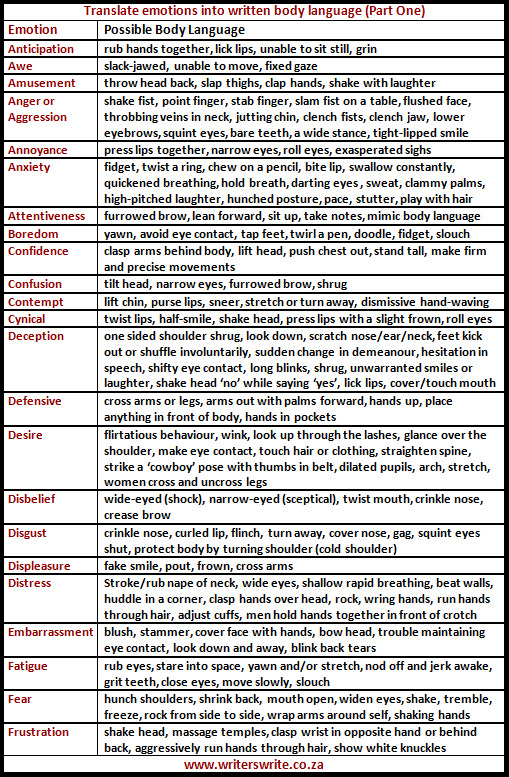
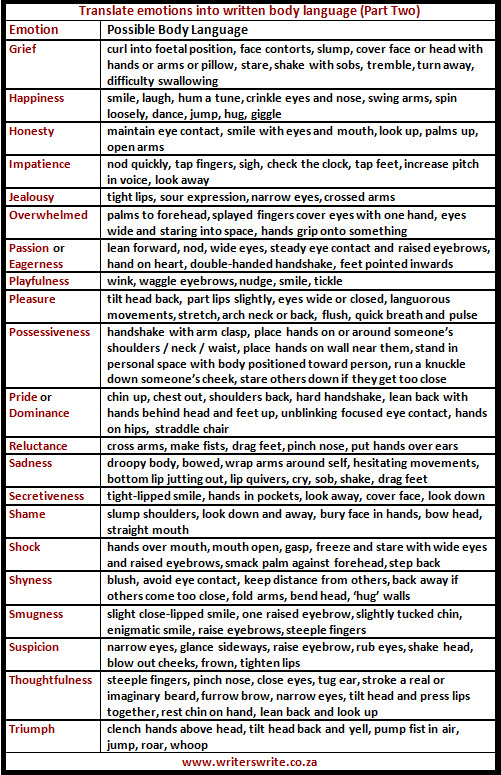
Again these are some amazing helpful tips for writers on how to write Body Language. These cheat sheets were found via stumbleupon via THIS WEBPAGE Oh how I love it.
#cheat sheet for writing body language#cheat sheet#writing#writing tips#tips for writing#tips for writers
1K notes
·
View notes
Text
Writing an Impactful Death: Just the Basics
@jarianamendes said:
Hi! I love your profile, it is honestly such a life-saver I’m so glad I came across it! I was also wondering if I could get your insight on a character death I’m writing? She dies toward the end, and at this point she’s formed a borderline romantic relationship with this boy, in which they have so many inside jokes & a lot of intimacy, yet neither of them wanted to admit their feelings for each other. I’m not sure how to write the impact of her death on him in an effective way. Any tips? Thanks!
Hi there, thanks so much!
Knowing the Importance of Your Character
The more important this character is to the story, the more their death is going to have an impact on the surrounding characters. It sounds like the character you’re referring to is pretty important to the story, and you want to make sure your readers know that. Develop them as a person and create connections with the character, and everyone who experiences their death will feel it in one way or another.
Additionally, knowing this character’s relationships with everyone else is extremely important. Their relationships will heavily influence everyone else’s reactions to the character’s death, whether they’re present for it or not.
Knowing the Importance of This Character’s Death
What purpose does their death serve? If you’re killing a character off specifically to surprise, anger, or sadden the reader, then you’ll probably need to do some rethinking on whether this death is necessary in the first place.
If you want this character’s death to have an impact, it needs to have some sort of effect on the story itself. The last thing you want to have in your story is a pointless death, especially if this character was important to the story. Maybe they die a heroic death, saving someone else with a large role in the story, or maybe they do something and end up saving the day. Anything is better than killing off a part of your cast to just create a reaction from your readers.
Knowing the importance of your character’s death gives it more of an impact because there was a purpose for it.
So, that’s all I can come up with for now. There’s definitely a lot more that goes into writing an impactful death but I happen to have the flu and an intense headache right now, so in the future I’ll definitely expand this into a larger, more in-depth post. I hope this helped, though! <3
#writeblr#writing tips#writing advice#tips for writing#impactful death#writing an impactful death#write#writer#writing#author#authorblr
1K notes
·
View notes
Text
Wanna know how I got these scarves?: How to write an appropriate antagonist.
I think we can all agree that a well-written villain provides the perfect Ying to the Protagonists Yang, the good to the bad, the raisin to the chocolate chip cookie, so here are a few tips on how to get your antagonist just right:
1. Looks.
The look of your villain is vital to how you want them to be portrayed, how you want your readers to imagine them and how obvious you want their villainy to be. For instance, if you are going for a more cheesy or stereotypical-type villain then its a safe bet that going for the typical goatee, black hair and leathers will hit the nail on the head with that one. However it should be remembered that not all villains look like villains, Stephen Moffat, for instance. In everyday life the murderers often look just like any other normal person. People marry ever-day villains without even thinking for a second that they could be murderers or rapists or have any sort of masochistic intent. If you're looking for realism then your antagonist must look like an every day, random person.
Note: It is worth noting here that I am not saying either type of villain is better than the other, if it fits with your story then it fits with your story. Stereotypical villains can be loads of fun to write, as can subtle ones. How you describe your villain is YOUR choice, this is merely a guide.
2. Motive.
The joker does it because its fun, Javert does it because its his job, Stephen Moffat does it because he's bored. Every villain has a motive and every motive is central to that villain. There is no point writing an antagonist who is only causing havoc because they are an antagonist. You have to remember when writing your villain that every, single one of them has a reason to do what they're doing and, often, its because they believe that what they're doing is the right thing. The truly terrifying villains cannot be reasoned with, cannot be bought and cannot have their minds changed because they either; fully believe that what they are doing is the right thing to do or don't have an aim/ are doing it for fun. A villain who is killing for money, while still scary and in no way a weak antagonist, can be bought. You have to think of the motive in order to realise how they would react to certain situations. This will also help with how they react to the protagonist and how the protagonist deals with them. If they can be bought then how would the protagonist go about it, if they can't they how can they be defeated? These are questions you need to be asking at every main point in the story in order to build a strong antagonist.
3. Skills.
Every villain has skills or abilities at their disposal in order to get to where they are. They don't necessarily have to be excellent at everything, nor do they need to have superhuman powers (unless that's the story you're writing) but their skillset often differs slightly from that of normal people. Here is a list of skills that are common in villains (both subtle and stereotypical). Feel free to take from this list or add your own, these are just the basic few:
Cunning
Charisma
Intelligence
Strength
Drive
Apathy
Logic
Villains also often suffer from a number of mental ailments such as:
Depression
Megalomania
Schizophrenia (Note: Schizophrenia is not always characterized to the extreme of hearing voices. Often it manifests as a breakdown in communication between thought, emotion and behavior)
Anxiety
OCD.
Dissociation identity disorder (split personality)
Note: These are only a few basic disorders and skills that villains may encompass. These will differ dependent on the villain and their individuality Villains are characters and need to be created with their own personalities.
4. Henchmen.
Often, with a singular villain comes a small group of followers. These will either be there out of fear of the main antagonist, because they're getting paid or because they are friends with the villain. While each antagonist has to be thought out carefully, the same amount of thought should go into the henchman- albeit in not so much detail. Treat them as little villains- villainetts if you will.
#Writing tips#antagonist character development#writing help#tips for writing#tips for writers#writing novel#novel tips
438 notes
·
View notes
Note
hi! do you have any tips for writing long fics?
helo helo :> i just layed out the framework the way i prefer to do. I'm still working on it, writing long fics.
Ask yourself how long its gonna be? 5k? 10k ? 20k?; set a word count of the fic ( just an approximation)
divide them in parts — i generally do it like this, not a special thing to follow but just a framework.
[a] Exposition: A direct way of telling the reader/audience what's happening in the story before it starts. It sets the tone of the whole story including establishing the characters and where the story is going to take place.the introduction of the plot.
[b] Inciting Incident or Rising Action: Because of what is established in the exposition, the characters in the story are led to do something. This part gets more suspenseful as the story progresses making the audience wonder what's going to happen next. That's why it's a "rising" action. Be specific as you can be since you won't be able to add plot details in next part
[c]Climax: This is usually the most important part of the story. It's the culmination of everything that's happened in the story so far and the point where a choice or an action is made the affects every part of the story. It is the most descriptive part but please be mindful not to slip in too much info, just how the characters are feeling, reacting, thinking to do.
[d]Falling action: This is the part of the story which shows the consequences of climax and the "fallout."You can info dump here again apart from adding Redemption, regret, reconciliation ( if any ).
[e] Denouement or Resolution: This is the conclusion of the story that wraps everything up and fills in any details that hadn't been revealed before so that the story is fully understood. And it gives you an indication of what's to happen once the story ends too or you can give a open ending if you'd like to continue in future.
Set a word count for each of the parts. don't worry if it doesn't match the overall approximating word count you had in the first place for this fic. None of them will be same at the end.
Start writing a synopsis for each part, jot down points you want to touch, even if it's just broken sentences. No one's gonna check that, the result MATTERS. So, write anything in anyway which you won't forget. Sometimes I have oneliner musing to remember the dynamic,the emotional elements that I want to write.
NOW, there must be a scene, a part that you're dying to write, that made you write this long fic in the first place. If you feel restless to write that, please do. It'll get easier to finish and you'll get a huge boost to write the rest of the part. It can be the climax, anti-climax or even the conclusion.
try to finish a part a day, at least a part of part. Be patient with writing otherwise it'll get tiring when you'll be proofreading
listen to music. Yes music, not songs. Only music. Lofi works the best but feel free to pick your niche. It'll help you focus if you're very excited to write the fic.
After completing all you have to do is to beta read. This is harder than you think. It is the same fic that you've been writing for days , maybe months and you might grow monotonous of reading it again. So, beta read can be done in two ways.
one— you can take a day's gap (or whatever you deem fit ) and read, make the necessary corrections in one sitting.
two— do it by parts. starting with your favourite scene or going from the last part to the first part.
Or you can ask someone to beta read. I don't because I can't let someone go through my 10k of brainrot because of one particular scene.
Thank you. i wish you all the best in writing your fic <333
#paradistalks#📬 — mails#writing tips#tips for writing#tips for writers#just tagging in case this helps anyone out#long writing#long fic
112 notes
·
View notes
Text
Tips On How to Write a Shape-Shifting Character (For both fanfic writers and original content writers)

(gif courtesy of http://ilyone.tumblr.com/)
HOLY SHIT MY LAST POST ABOUT WRITING WINGED CHARACTERS (which you can find here) GOT A SHIT TON OF NOTES! SO I DECIDED TO MAKE ANOTHER ONE ON SHAPE-SHIFTERS!
There are a lot of shape-shifting fics and stories out there. Like. A lot. Whether they be about were-creatures or about characters that just have the ability to shape-shift, a lot of the times- like with winged characters- these shape-shifters are not written very well.
They may be unoriginal, or they may be super Mary-Sues/Gary Stus when it comes to the fact that they have an infinite amount of power or whatever. So I decided to tackle the issues that come with creating a shape-shifting OC or making a canon character into a shape-shifter.
1. Decide what your character’s shape-shifting will be mainly used for

Shape-shifting can be used for a variety of reasons, and that’s why it’s critical for you to figure out what your shape-shifter will mostly be using their powers for.
Here are some reasons why shape-shifters can use their powers:
-Battle (transforming into a bigger creature to overpower enemies)
-Disguise (transforming into something that blends in with the environment around them to hide from enemies)
-Forced to shift (AKA werewolves)
-Spy work (transforming into antagonist’s lackeys to infiltrate the base or even vice versa)
2. Set Limits Right Off the Bat

Shape-shifters are incredibly powerful, and in theory, they can be practically invincible when it comes to battle and hiding from enemies.
However, that should ONLY be in theory. Your shape-shifters CANNOT be all-powerful like their abilities can call for them to be. Here’s where Mary Sue/Gary Stu elements come in, because many writers just state that their characters can shape-shift and leave it at that.
That brings up questions like:
“If he was running from the Big Bad™, then why didn’t he just shift into a wall or a chair and disguise himself?”
“If she had to fight the Big Bad™, why didn’t she just transform into a dragon and deep fry him?”
“Couldn't they just masquerade as the Big Bad™’s minions and get inside the secret lair?”
Then, the author tries to make up for the lack of rules by giving us some half-assed explanation halfway through the third book.
As soon as the reader finds out that the main character is a shape-shifter, you have to lay down the groundwork for the limits.
Can they only transform into animals?
Can they only transform a certain amount of times at any given point?
Is there something that distinguishes them from the object/person/animal that they’ve transformed into?
Can they only transform into inanimate objects?
Can they only transform into other people?
Does transforming take a lot of energy and therefore they don’t do it often?
Is transforming painful?
Take Beast Boy from Young Justice/ Teen Titans/ various other things as an example:

He can transform into a lot of animals, yes, but they’re all obviously green and unnatural, making it difficult for him to blend in with other animals. his means that his shapeshifting would be most used for attack than for disguise.
You need to set limits, or else your character will be all-powerful and the plot won’t be all that intriguing to the readers; they know that the protagonist will win, so they won’t bother to really get invested in the story.
3. There are many forms of shape-shifters. Just because the mainstream media is all about werewolves with sixteen packs that can cut glass doesn’t mean that you have to make werewolves only

Did you know that technically, a werewolf is just a subdivision of were-creatures?
The prefix “were/wer” means “man” and is usually followed by the name of an animal, ANY animal, to imply that the man (or woman) is transforming into it. Therefore, there could be werecats, weretigers, werelions, wereunicorns, and were[insert plural name of creature here]. You should really look up the different kinds of shifters from all different cultures and regions of the world. They’re actually quite amazing!
Here’s a list of some of my favorite shapeshifter creatures (Note that these are not all of the shapeshifters, just my personal favorites some of which I feel needed to be represented more in literature):
-Were[insert name of big cat here]
-Werewolf
-Animaguses(Animagi?) (don’t use these they’re JK Rowling’s I just really like Animagi)
-Generic, run-of-the-mill shapeshifters
-Were creatures that are actually just the creature trying to masquerade as a human/ a creature that has a human form
-Transforming into huge gruesome monsters (it’s good shit 10/10)
4. You don’t have to describe the full transformation every single time. The first time is enough.

Readers don’t want to have to go through long, agonizing paragraphs of description every time your character changes, especially if they change during a battle. They don’t want the bloody, gory action to be disrupted by a description of a transformation that they’ve read a hundred times before.
If you truly want to describe the transformation more than once, though I highly advise against it, never describe it more than three times, and make sure to make it unique every single time. If you don’t think you can do that, just describe it once.
You should, however, describe the symptoms that come with transforming. Is it painful? Is it uncomfortable? Does it feel incredible because it makes the character feel a rush of power? Gimme the deets, but not all of them.
Things that happen during transformation that you can describe:
Painful
- Fur/scales growing (stinging and itchy)
- Bones breaking and reorganizing, as well as new ones appearing and old ones transforming
- Muscles ripping and elongating/shrinking
- Fingernails/toenails turning into claws
Invigorating
- Heightened sense of sight/smell/hearing
- Adrenaline rush
- More power/strength/speed
Hope this helped!
#writing help#writing tips#tips for writers#tips for writing#tips for beginners#tips for beginner writers#tips for fanfic writers#help for writers#writing#creative writing#writing fanfic#helpful#writing inspiration#creative writing help#fanfic writing help#fanfic#fanfiction#writing fanfiction#fanfic writers#creative writers#writing a book#writing a novel#writing advice#creative writing advice#fanfic writing advice#tips on how to write shapeshifters#shapeshifters#tips on how to write#advice on how to write#help with writing
11K notes
·
View notes
Text
Character Development: Body Language
Your character’s body language in different situations can tell you a lot about their character. It can show a lot about both their natural disposition and how they feel about different situations. Remember: your character might or might not be aware of their body language. There is a difference between unconsciously leaning away in an awkward situation and deliberately moving back - this sends a different signal. Not all of these actions will appear in your writing (unless you’re working with film, in which case, go right ahead), but knowing them will help you, the author, not only know your characters better, but also help with how other characters might react to your character’s body language.
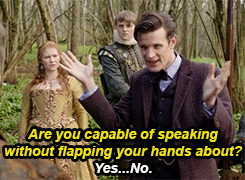
Ask yourself these questions:
What does your character do when talking? Do they wave their hands about incessantly? Do they wrap their arms around themselves and not look people in the eye? Do they respect personal space or do they get really close?
What do they do at rest? Do they lounge against a wall? Flop themselves into a chair? Stand awkwardly away from others? Do they prefer to sit? Stand? Do a cartwheel because they’re bored? Tap their foot nervously?
How do they sleep? Do they kick off the blankets? Toss and turn? Curl up under seven blankets? Sleep on their side? Lie on their back like a vampire?
How do they stand or sit? (This can be tied into the above, with what they do at rest.) Do they sit at the edge of the chair? Sit with their feet over the armrest? Sit with the back of the chair in front of them? Do they stand and lean against a wall? Do they stand confidently? Do they stick their hands in their pockets?
How do they read/write/draw/do math/work? Do they read books lying upside down on the couch? Do they write curled up on their bed? Do they use a desk and sit very professionally? Do they lie on the floor to sketch?
How do they move/travel? Do they stride across the room? Take careful steps? Deliberately walk in a certain way? Are they fast or slow or somewhere in between?
How do they drive (if applicable)? Correctly, with hands at the ten and two, never going above the speed limit? Do they have one arm out the window most of the time? Have their seat leaning back? One hand on the steering wheel?
How do they act when they feel a certain emotion? For example, when they are upset or angry do they close themselves off? Do they broadcast everything and become more aggressive? Do they start smiling dangerously when they’re angry? Or when they’re happy, do they jump up and down in excitement? Hug people spontaneously? Or give a small smile because they don’t broadcast emotions a lot? When they are sad, do they become stoic? Do they cry constantly? Do they withdraw, or throw themselves into anything else to forget about their troubles?
Is there an action you want to be associated with the character, like a brilliant smile or running their hands through their hair? Does this action signify something about their emotional state at the moment? (Be careful not to overdo this and constantly use this action for the character, or it will get tiresome to the audience. You want to use this sparingly, or not at all.)
Keep in mind, again, that not all of this will appear in the actual writing you do, or at least won’t be explicitly stated. And it should be used in combination with other things like speech or their point of view. However, simply knowing how a character would react physically to a situation helps you understand the character better and how other people might react to their reactions.
Above all else, when you think about how your characters would physically act in a certain situation, think about the why as well. Why do they stride across the room? Wrap their arms around themselves? Cry constantly? What do these actions tell you about them as a person?
Anyway, hoped this helped! This is part of a set of posts I’m doing on character development. Since Tumblr’s being weird about linking, you will be able to find the others on my blog under the tag “character development series”.
- Riona
#writing#writing help#tips for writing#character development#body language#character development series#riona-is-writing
430 notes
·
View notes
Note
Hello! I was wondering if you have any advice or suggestions for book titles. Particularly in the action/romance/drama genre. Thank you!
advice for deciding on a book title
firstly, thank you for asking me! :)
this is definitely one of the hardest parts of writing (along with character names).
for the romance/action/drama genre— or for any genre frankly, there are three ideas i approach to tackle this aspect of writing.
sayings, idioms, and or classic media
^^ cross out titles as a way to switch up phrases
describing how your characters meet, or something relating to their relationship in the novel specifically
to start with #1.
i search up (and or think of) idioms, or media, or things people say in general. then i either use those, or twist it a little and give it my own flare.
an example of this would be the book much ado about you by eloisa james, which put a twist to shakespeare’s much ado about nothing, or one like you deserve each other by sarah hogle, which is just a phrase people use often.
i use this site most often for sayings. i think it also helps to pay attention to daily life.
take the book very sincerely yours by kerry winfrey for example— that title is simply a way to sign off an email— and there are many different variations you could come up with depending on the book, like “yours truly,” or “with love,” or “thinking of you.”
let’s say your story is a comedic/romance/action/drama one about eeehhhh a gal who meets someone who’s a detective on her crazy family’s case (but she doesn’t know at first and they fall in love or something (don’t shoot me okay i just came up with it now)). you could have something simple like “first comes love, then comes cuffs”, or you could go simpler with, “humor me.”
keep in mind:
your title doesn’t actually have to be something blatantly plot specific.
it can be about one component of your story, or two, or five— or it could be about one throwaway line you had in the book (you deserve each other does this).
take for example famous last words by katie alender, where the title only targets the horror/action/hollywood-esque part of the story, although there’s more plot to it. it’s also a relatively common saying and is effective despite being known already.
or on the flip side, there’s the flatshare by beth o’leary, which quite literally tells you exactly what the book is about strictly from the title. a flatshare. it is simple and to the point and doesn’t take away from the story itself. same with howl’s moving castle by diana wynne jones.
#2 (which is basically a subsection of #1) is cross out titles, which are also very neat to me (and make for pretty cover art). these are where a title cuts out a part of the original title and only keeps parts that fits their novel.
for example the saying “out of sight, out of mind”, which could turn into “out of sight, out of mind” or “out of sight, out of mind my life” or something silly like that.
a more serious (and real) example is everything i know about parties, dates, friends, jobs, life, love by dolly alderton.
#3 is a title that describes the way your characters meet, which i find have a wistful effect to them.
an example of this would be it ends with us by colleen hoover, the wedding date by jasmine guillory, or aristotle and dante discover the universe by benjamin alire sáenz.
some titles straight from my head that follow the theme of describing the characters relationship (again, titles aren’t my strong suit) are “and yet, there is you” for something along the lines of a second chance romance, or one where the characters hate each other but are still drawn to each other despite it. either that, or “a song for your thoughts,” for a story where one of the characters enjoys singing, or maybe karaoke is an inside joke between them.
was this just me talking about some of my favorite books? maybe! do i regret it? no!
i hope this helps even if the effect is minuscule! happy writing! :)
#writeblr#writing#writing advice#tips for writing#book titles#writing tips#hope i don’t sound like i have no clue what i’m talking about i just ramble a lot#writing romance#romance titles#title inspo writing
106 notes
·
View notes
Text
WRITING TIP OF THE WEEK:
Place emotionally contrasting scenes near each other.
You ever wonder how certain authors nail that “rollercoaster of emotions” vibe? It’s because they put contrasting moments near each other. Give your readers a break after a tense scene by following it with one that’s more positive. Take a really happy moment and follow it up with a terrifying scene that leaves your characters broken and miserable.
Not only does this method leave your readers unable to predict what’ll happen next, but it’ll also help with pacing and ensuring you don’t have too many moments that drag.
1K notes
·
View notes
Text
𝗹𝗶𝗺𝗶𝘁𝘀 𝗼𝗳 𝘁𝗵𝗲 𝗵𝘂𝗺𝗮𝗻 𝗯𝗼𝗱𝘆 !
body heat — 107.6 F
cold water — 40 F
hot air — 300 F
starvation — 3 weeks
diving depth — 282 feet
lack of oxygen — 11 minutes
blood loss — 40%
high altitude — 15. 000 feet
#random facts#tips for writing#writing#writing tips#writing help#science#new writerblr#human biology#newwriterscommunity#sci fi horror#horror#gory art#tw killing#writingblr#bookblr#tropes#writing inspo#imagine your otp#my words#book reccs#fanfic tropes#fanfic prompt#fanfic ideas#books and libraries
367 notes
·
View notes
Note
do you have any tips for writing?
(my time has come!!!)
(there is supposed to be an apostrophe in ‘KITS’ below, but it seems to have disappeared, don’t shout at me for grammar…)
Perseverance is key!
Write in the style that suits you best
GRAMMAR!!! For fuck sake, please check it! (what is so hard about your and you’re?)
Make it easy to read e.g. paragraphs
Don’t steal other people’s ideas, they get pissy
Read other people’s to get the gist of writing, but don’t steal their shit (see above)
Don’t sell your soul to write a good story, that shit gets messy
Don’t go overboard and make it too unrealistic (unless that is the point)
Plan before you write, even if it’s just the basics
If you don’t think you can stick to a multi-chaptered story, start off writing one shots until you think you can commit to them. Kind of like a relationship (not that I would know anything about those)
Embrace the criticism, don’t have a go at people for saying something sucks, just take in to account what they said and use it to improve
You will get better with time, so if you think something is shit, you can always look back at it one day and see how much you’ve improved
If you think something is bad, and you aren’t sure if people will like it, share it anyway, you’ll never know if you don’t try
Write when you feel like it, don’t make it seem like a chore, that will take the fun out of it
Have some sort of warm drink with you, it makes it all seem more professional
Shouting profanities at the writing doesn’t always help
Have conversations in your head to plan out the dialogue, it actually helps
Music can be distracting, I suggest some soft classical music so that you aren’t singing and dancing and getting distracted
Don’t be afraid of the word ‘said’, using big words can distract people from the actual dialogue
Writing at 3am may result in some weird shit, do you want people to think you’re insane?
Try to be original, not everyone likes clichés
Do your research before your write, you don’t want to get things wrong and have everyone on your case
ENJOY WRITING, have fun with it
I think that is all for now :) Have fun, and I hope to be reading your writing soon :) xxx
95 notes
·
View notes
Photo
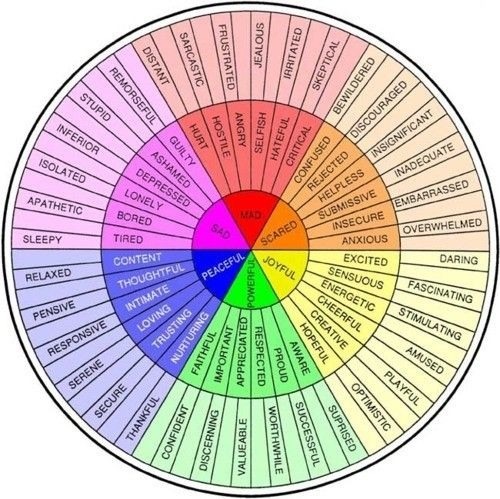
85 notes
·
View notes
Text
How to get your rhythm back: A guide by someone getting their groove on.
There's a difference between procrastinating and the dreaded writers block. So here are a few tips to break through the wall and get those creative juices flowing:
1. Music, music, music, music, music:
I have said it before and I will say it again- music is the best motivator. Once you get the tunes rolling then so will you. Create a playlist based on whatever it is you're writing, music from the time (if possible), music that reminds you of the characters or just music that you think fits the setting. If you get the block then play the playlist and just listen. Don't write, just think of what it reminds you of, think of the setting or the context the music reminds you of. Eventually motivation and inspiration should come to you.
2. Chatting about it:
Talk to someone about it, get yourself excited. Ring up your best mate and have a chat about whats happening in the story, where its going, whats supposed to happen next. Talking over where you're stuck will help you get yourself out of being stuck, teamwork is the key. Try and find a writing buddy, someone you can call when you've drawing a blank and who can call you when they're drawing a blank. Seriously, help each other over the brick wall of writers block and you'll feel much better.
3. Have a break.
KitKats are not necessary but advised. Have a cup of tea, watch an episode of something, check Tumblr (but be careful not to get stuck), feed the cat before she kills you, water the vegetables, check under the bed for monsters. Just have a rest from writing and let your mind settle for a little while. Chill. Once your brain has stopped buzzing then look over what you've written and see if you can continue. Remember, if you can't then don't force it. Just leave it be for a day and come back later.
4. Research.
What are the native american binding rituals from the early eighteen-hundreds? How many walnuts can a squirrel fit in its mouth? How long does it take for a human body to burn? Questions you should have probably asked yourself before you started but have been putting off for a while, take this time to get them answered. It keeps you in the right mindset for writing, gets some research done and helps you figure out all the kinks. Hopefully, once you get it smoothed out then you will be able to carry on writing and, if not, you have at least got some work done.
DON'T FORGET:
No matter what, even if you have a target to work to. NEVER FORCE YOUR WRITING. If you really can't finish what your doing, or if you're really stuck then just finish the sentence and leave it alone. Eventually you will come back and be able to continue writing, but as of the moment its better to leave it than force something you're not inspired by. Forcing writing may, eventually, lead to you getting disappointing in your writing once you read it over and thus losing faith in yourself and giving up. Leave it and come back later- trust me, you'll thank me.
#Writing tips#writing help#writing#Tips for writing#help for writing#Help for writers#writers#help for novels#tips for writers#writing guides
378 notes
·
View notes